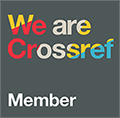Okul Öncesi Dönemde Çocuğu Satranç Eğitimi Alan Ebeveynlerin Satranç Eğitimine İlişkin Görüşleri
DOI:
https://doi.org/10.33308/26674874.2022361341Anahtar Kelimeler:
Okul Öncesi- Satranç- EbeveynÖzet
Araştırmada okul öncesi dönemde çocuğu satranç eğitimi alan ebeveynlerin satranç eğitimine ilişkin görüşlerinin ortaya çıkarılması amaçlanmıştır. Bu araştırmada nitel araştırma desenlerinden durum çalışması kullanılmıştır. Araştırmanın çalışma grubunu çocuğu okul öncesi eğitimine devam eden toplam 118 ebeveyn oluşturmaktadır. Çalışma grubunun oluşturulmasında amaçlı örnekleme yöntemlerinden ölçüt örnekleme tekniği tercih edilmiştir. Araştırmanın verilerinin toplanması için açık uçlu anket sorularından yararlanılmıştır. Katılımcılarla yapılan görüşmelerin yüz yüze olması planlanmış, ancak pandemi nedeniyle veriler üç araştırmacı tarafından çevrimiçi ortamda oluşturulan formların her bir katılımcıya ulaştırılması yoluyla toplanmıştır. Araştırmada katılımcılardan elde edilen veriler içerik analizi yöntemiyle analiz edilmiştir. Araştırma sonuçları incelendiğinde ebeveynlerin okul öncesi dönemde satranç eğitimi alan çocuklarının alternatif düşünme becerilerine, dikkat/odaklanma süresine, planlama/strateji becerisine, matematiksel düşünme becerisine, neden-sonuç ilişkisi kurmasına katkı sağlayarak akademik becerilerini arttırdığını söyledikleri görülmektedir.
İndirmeler
Referanslar
Aciego, R., Garcia, L., & Betancort, M. (2012). The benefits of chess for the intellectual and social-emotional enrichment in school children. The Spanish Journal of Psychology, 15(2), 551-559.
Agarwal, N. (2011). The advantages of playing chess. Deccan Herald. https://www.deccanherald.com/content/165644/advantages-playing-chess.html
Aile, Çalışma ve Sosyal Politikalar Bakanlığı. (2020). Pandemi sürecinde çocuklarımız “satranç eğitimi” alarak turnuvalara hazırlanıyor. Aile ve Çalışma. https://ailevecalisma.gov.tr/yalova/haberler/pandemi-surecinde-cocuklarimiz-satranc-egitimi-alarak-turnuvalara-hazirlaniyor/
Akay, K. (2017). Okul öncesi dönem çocuklarına verilen satranç eğitiminin bilişsel ve sosyal davranışa etkisinin incelenmesi (Yayımlanmamış Yüksek Lisans Tezi). Necmettin Erbakan Üniversitesi
Barford, V. (2011). Should every child be made to play chess? BBC News. https://www.bbc.com/news/magazine-13140772
Bilgin, N. (2006). Sosyal bilimlerde içerik analizi. Siyasal.
Bon, L. (2018). 10 reasons why croco chess should solve the age-old chess problem? Medium. https://medium.com/@laurensbon8/10-reasons-why-crocochess-should-solve-the-age-old-chess-problem-31b1a05559bb
Creswell, J. W. (2017). Nitel araştırmacılar için 30 temel beceri (H. Özcan, Çev.). Anı.
Çapan, O. (2016). Oyunlarla satranç. ODTÜ.
Çelebi, B. (2013). Herkes için satrançla yaşam. Mavi Basım.
Çubukçu, A., & Kahraman, P. B. (2017). Okulöncesi dönem çocuklarının problem çözme becerilerinin satranç eğitimi alma durumlarına göre incelenmesi. Pamukkale Üniversitesi Eğitim Fakültesi Dergisi, 43(43), 51-61.
Dauvergne, P. (2000). The case for chess as a tool to develop our children’s
ElDaou, B. M. N., & El-Smaieh S. I. (2015). The effect of playing chess on the concentration of ADHD students in the 2nd cycle. Procedia-Social and Behavioral Sciences, 192, 638-643.
Erhan, E., Hazar, M., & Tekin, M. (2009). Satranç oynayan ve oynamayan ilköğretim öğrencilerinin problem çözme becerilerinin incelenmesi. Beden Eğitimi ve Spor Bilimleri Dergisi, 11(2), 1-8.
Ferreira, D., & Palhares, P. (2008) Chess and problem solving involving patterns. The Mathematics Enthusiast, 5(2), 249-256.
Gardiner, C. G. (2018). Leaarning chess and the development of cognitive thinking in Queesland primary schools: an exploratory study. (Unpublished Master’s Thesis), University of Southern Queensland.
Gliga, F., & Flesner, I. P. (2014). Cognitive benefits of chess training in novice children. Procedia-Social and Behavioral Sciences, 116, 962-967.
Gobet, F., & Campitelli, G. (2002). Intelligence and chess. In J. Retschitzki, & R. Haddad-Zubel (Eds.), Step by step. Proceedings of the 4th colloquium board games in academia (ss. 103-112). Fribourg (Switzerland): Editions Universitaires.
Gumede, K., & Rosholm, M. (2015). Your move: The effect of chess on mathematics test scores. Discussion Paper Series, 9370, 1-24.
International Chess Federation (2018). Chess a toolfor education. International Chess Federation. https://cis.fide.com/images/stories/OGF3/ogf3en2-180322.pdf
Islam, A., Lee, W. S., & Nicholas, A. (2021). The effects of chess instruction on academic and non-cognitive outcomes: Field experimental evidence from a developing country. Journal of Development Economics, 150, 1-18.
Ivashchenko, S. (2007). The manual of chess combinations volume 1a. Russian Chess House.
Jerrim, J., Macmillan, L., Micklewright, J., Sawtell, M., & Wiggins, M. (2018). Does teaching children how to play cognitively demanding games improve their educational attainment? Evidence from a randomized controlled trial of chess in struction in England. Journal of Human Resources, 53(4), 993-1021.
Jianguo, P., Wenying, J., Zhigang, H., & Zhou, N. (2019). The influence of chess training on pupils’ self-efficacy, self-esteem and social anxiety. SHS Web of Conferences 60, 1-4.
Joseph, E., Manoharan, S., Easvaradoss, V., & Chandran, D. (2016). A study on the impact of chess training on creativity of Indian school children. Journal of Social Sciences, 4, 20-24.
Joy-Stanborough, R. (2020, October 19). The 10 best benefits of playing chess. https://www.healthline.com/health/benefits-of-playing-chess
Karakaya, İ. (2012). Üst düzey düşünme becerilerinin kazandırılmasında satranç bir araç olarak kullanılabilir mi? Bilim ve Aklın Aydınlığında Eğitim, 146(2), 73-76.
Karasar, N. (2012). Bilimsel araştırma yöntemi. Nobel.
Kids Academy (2018, July 30). 7 Life lessons chess can teach your child. Kids Academy. https://www.kidsacademy.mobi/storytime/life-lessons-from-chess/
Kulaç, O. (2007). 1. ve 2. Kademe antrenör interaktif satranç kitabı. Printer Ofset.
Levin, H. D. (1994). Chess puzzles for children. Syllogism Press.
Levy, W. (1986). Utilizing chess to promote self-esteem in perceptually impaired students. US Chess Trust. http://www.uschesstrust.org/utilizing-chess-to-promote-self-esteem-in-perceptually-impaired-students/
Lillo-Crespo, M., Forner-Ruiz, M., Riquelme-Galindo, J., Ruiz-Fernández, D., & García-Sanjuan, S. (2019). Chess practice as a protective factor in dementia. International Journal of Environmental Researchand Public Health, 16(12), 2116.
Maxwell, J. (1992). Nitel araştırmada anlama ve geçerlilik. Harvard Eğitim İncelemesi, 62(3), 279-301.
Merriam, S. B. (2013). Nitel araştırma desen ve uygulama için bir rehber. S. Turan (Ed.), Nitel verilerin analizi (E. Karadağ, Çev.) içinde (ss. 39-54). Nobel.
Meyers, J. (2000) “Why Offer Chess in Schools?” in McDonald, P. S. (2000). The benefits of chess in education. http://www.chessedu.org/wp-content/uploads/BenefitsOfChessInEd-1.pdf
Patton, M. Q. (2014). Nitel araştırma ve değerlendirme yöntemleri (M. Bütün & S. B. Demir, Çev)(1. Baskı). Pegem Akademi.
Poston, D. I., &Vandenkiebomm, K. K. (2019). The effect of chess on standardized test score gains. Sage Open, 9(3), 1-22. https://doi.org/10.1177/2158244019870787
Sala, G., & Gobet, F. (2016). Do the benefits of chess instruction transfer to academic and cognitive skills? A meta-analysis. Educational Research Review, 18, 46-57.
Sala, G., Gorini, A., & Pravettoni, G. (2015). Mathematical problem-solving abilities and chess: an experimental study on young pupils. Sage Open, 5(3), 1-9.
Sherman, L., & Kilpatrick, B. (2012). Chess is child’s play teaching techniques that work. Mongoose Press.
Tanajyan, K., Melkonyan, N., & Movsisyan, S. (2021). Chess as a social value. Main Issues of Pedagocy and Psychology, 19(1), 32-37. https://doi.org/10.24234/miopap.v19i1.390
Tatlıpınar, S. (2017). Satranç öğretiminin okul öncesi çocuklarda dikkat gelişimine etkisi. (Yayımlanmamış Yüksek Lisans Tezi). Selçuk Üniversitesi Sosyal Bilimler Enstitüsü.
Torabi, A. (2016). A Pilot Evaluation of a Multi dimensional Treatment Model (MTM) of 8 to 12 year old students with mild attention deficitand hyperactivity disorder. Int J Appl Psychol, 6(4), 121-9.
Trinchero, R., & Sala, G. (2016). Chess training and mathematical problem solving: the role of teaching heuristics in transfer of learning. Eurasia Journal of Mathematics, Science Technology Education, 12(3), 655-668.
Türkiye Satranç Federasyonu (2021, Ocak 21). Satranç, ortaokullarda seçmeli ders olarak verilecek. TSF. https://www.tsf.org.tr/guncel-haberler/15174-satranc-ortaokullarda-secmeli-ders-olarak-verilecek
Untertainer, J. M., Kaller, C. P., Halsband, U., & Rahm, B. (2006). Planning abilities and chess: a comparison of chess and non-chess players on the tower of London tasks. British Journal of Psychology, 97, 299-311.
Velea, T., & Cojocaru, V. (2018). The effect of playing chess on focused attention. The European Proceedings of Social & Behavioural Sciences, 685-690.
Welnhouse, B. (2005). The brainy benefits of chess. Parents. https://www.parents.com/kids/development/intellectual/benefits-of-chess/#:~:text=While%20some%20children%20will%20be,the%20ideal%20time%20to%20start
Yıldırım, A., & Şimşek, H. (2016). Sosyal bilimlerde nitel araştırma yöntemleri. Seçkin.
İndir
Yayınlanmış
Nasıl Atıf Yapılır
Sayı
Bölüm
Lisans
Telif Hakkı (c) 2022 Yaşadıkça Eğitim

Bu çalışma Creative Commons Attribution-NonCommercial-NoDerivatives 4.0 International License ile lisanslanmıştır.
Sisteme yüklemiş olunan makalenin kapsamı, sunduğu bulgular ve sonucu ve yorumları konusunda Yaşadıkça Eğitim [YE] dergisi Sahibi, Editör, Editör Yardımcısı, Hakemler ve Editör Kurulu'nun hiçbir sorumluluk taşımadığını kabul ederim.
Makalenin özgün olduğunu, herhangi bir başka dergiye yayımlanmak üzere gönderilmediği, daha önce yayımlanmadığını Yaşadıkça Eğitim [YE] dergisi Editörlüğü'ne beyan ederim.
Başlığı belirtilen makalenin, 5846 sayılı Fikir ve Sanat Eserleri Yasasının 22. maddesi gereğince çoğaltma, 23. maddesi gereğince yayma ve 25. maddesi gereğince her türlü taşıyıcı materyal üzerinde veya elektronik ortamda kamuya iletim haklarını Yaşadıkça Eğitim [YE] dergisine karşılıksız, koşulsuz ve süresiz olarak devredildiği, makale ile ilgili devredilen hakların dilediği zaman, mekan ve koşullarda kullanmaya Yaşadıkça Eğitim [YE] dergisinin yayıncısı olarak İstanbul Kültür Üniversitesi'nin yetkili kılınacağını onaylarım.





